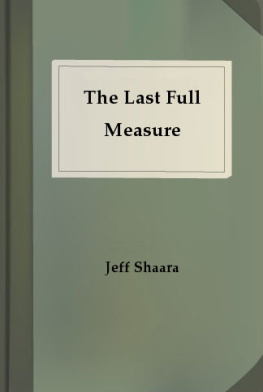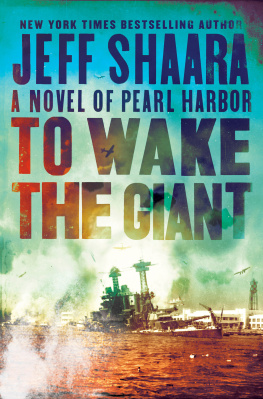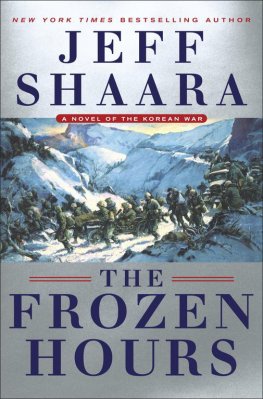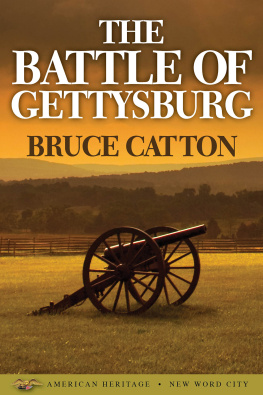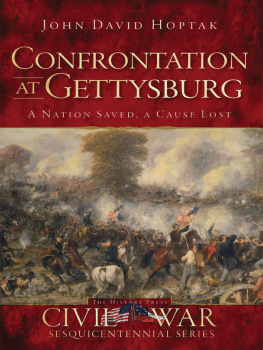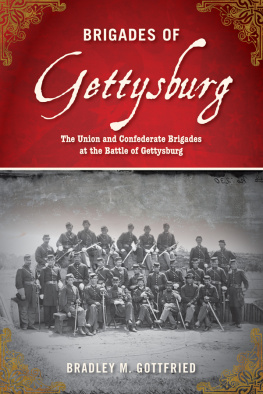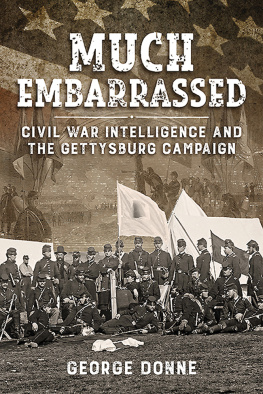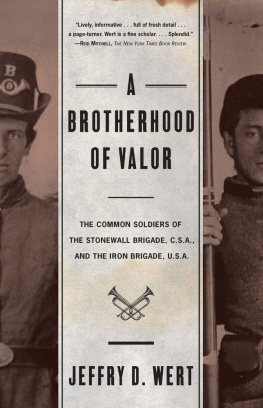Jeff Shaara - The Last Full Measure
TO THE READER
THIS STORY IS THE THIRD PART OF A TRILOGY, FOLLOWING THE lives ofkey characters of the Civil War, from the aftermath of the Battleof Gettysburg, through the surrender at Appomattox, and beyond.While the cast of characters of that momentous event was huge, thisstory follows primarily three men: Robert E. Lee, Joshua LawrenceChamberlain, and Ulysses S. Grant.
This is neither a history book nor a biography, but a story toldfrom the points of view of the characters themselves, through theirown eyes and their own experiences. In many ways these are ordinarypeople caught up in extraordinary times. These particularcharacters stand apart because each, in his own way, rose to ahigher level, not just as a war hero, but as a man of character anddignity and honor. To some these characteristics are quaint and outof date. To many others they are qualities that our modern world issorely missing.
In some ways this is a very different story from the first twoparts of the trilogy. After Gettysburg there is a change in the waymen see the war, and in the way they fight it. There is littleenthusiasm now for the traditional assault, sending dense lines ofmen across open ground into the massed guns of a heavily fortifiedenemy. Gettysburg has badly wounded both sides, and though it isclearly a defeat for Lee's army, neither side is quick to pursueanother fight on such a huge scale. In the West-Tennessee andMississippi-the war still rages, but in Virginia there is now alull, a time for both armies to heal their wounds and plan the nextgreat strategy to bring the awful war to an end. What no one canknow is that Gettysburg is not the final battle, and that fornearly two more years there will be no peace.
It is the job of the historian to tell us what happened, to providethe dates and places and numbers, all the necessary ingredients oftextbooks. It is the job of the storyteller to bring out thethoughts, the words, the souls of these fascinating characters, totell us why they should be remembered and respected and evenenjoyed. While this is a novel, it is not false history. The timeline, the events, and the language are as accurate as I could makethem. It has been my great privilege to come close enough to thesemarvelous characters to tell their story, and so, to bring them toyou.
JEFF SHAARA
ACKNOWLEDGMENTS
FOR THE CONSIDERABLE ASSISTANCE I HAVE RECEIVED IN THE writing ofthis book I must thank the following:
Gabor Boritt, The Civil War Institute, Gettysburg, Pennsylvania,for generously providing information and materials and insight onthe character of Abraham Lincoln.
Chris Calkins, Chief Historian, Petersburg National Battlefield,Petersburg, Virginia, for the generous gift of his time, hissingular knowledge of those special hidden places and hisenthusiasm for sharing them.
Dr. John Elrod, President, Washington and Lee University, for hisextraordinary graciousness and hospitality, making available theLee and junkin residences, occupied still by the universitypresident and dean, thus allowing prying eyes into the privacy ofhis own home.
Patrick Falci, of the Civil War Round Table of New York, who is atireless source of information and research material, and whosacrificed a large chunk of his vacation time to serve as guide formuch of the field research.
Beth Ford, Cincinnati, Ohio, who generously provided a marvelouscollection of original published works from the postwar era,including the published battle reports of every Confederategeneral.
Keith Gibson, Director of the VMI Museum, Lexington, Virginia, andhis- wife, Pat Gibson, whose hospitality and friendship continue toprovide insight and direction, and whose talent and enthusiasm forthe music of the period always remind us that there is more to ourhistory than the written word.
Cory Hudgins, and all the staff of the Museum of the Confederacy,in Richmond, Virginia, for their enthusiastic cooperation, andknowledge of details otherwise lost to history.
Joan McDonough, President, the Civil War Round Table of New York,for her own suggestions of source materials; her tireless energyand assistance in fact-checking are always appreciated.
Len Reidel, the Blue and Gray Educational Society, Danville,Virginia, for providing difficult to locate documents and materialon several of the characters.
Gordon Rhea, Charleston, South Carolina, author of The Battle ofthe Wilderness and The Battle of Spotsylvania Courthouse and theRoad to Yellow Tavern, for not only having produced the two finestaccounts of these events that I have come across, but for hisgenerosity and support of this project by providing additionalresearch materials.
Diane Smith, East Holden, Maine, whose own research into the livesof Joshua and Fannie Chamberlain provided insights into anddiscussion of aspects of their personal relationship not readilyavailable.
Michael Wicklein and Susan Saum-Wicklein, of the Association forthe Preservation of Civil War Sites, Hagerstown, Maryland, fortheir generous assistance with biographical material I simplycouldn't find.
It is also my privilege to acknowledge the continuing friendshipand support of Clare Ferraro, the former publisher of BallantineBooks in New York, without whose faith and confidence I would notnow be nor probably ever have been a writer.
Every writer needs guidance, and for that I must thank Doug Grad,editor, Ballantine Books, who has been a patient sounding board andhas always supported my ideas. He is one of the few who seem tounderstand the magic of this amazing process, how the story flowsfrom the mind to the page, a process that is baffling to meyet.
This process never could have been completed without the constantsupport and tolerance of my wife Lynne. She reads every word,offers welcome insight into what I am doing right, and what I amdoing wrong, but more, she has endured my journey through stress,euphoria, aggravation, fear, exhaustion, and, when the work allows,laughter.
The positive attention that Gods and Generals received was awonderful surprise, and something that has pointed me in adirection I will follow for the rest of my life. My brief writingcareer has already provided me many positives, and a great deal offulfillment. I did not start i this Journey, I merely continue it,and I am following enormous footprints. I will never stand beforean audience, or dedicate a book, without acknowledging the man whoopened the door. Thanks, Dad.
INTRODUCTION
BY JULY 1863 THE CIVIL WAR HAS BEEN FOUGHT OVER THE FARMlands andseacoasts of the South for better than two years, and is alreadyone of the bloodiest wars in human history. It is a war that mostbelieved would be decided by one quick fight, one great show ofstrength by the power of the North. The first ma)or battle, calledBull Run in the North, Manassas in the South, is witnessed by acarefree audience of Washington's elite. Their brightly decoratedcarriages carry men in fine suits and society matrons in colorfuldresses. They perch on a hillside, enjoying their picnics,anticipating a great show with bands playing merrily while theyoung men in blue march in glorious parade and sweep aside theragged band of rebels. What they see is the first great horror, thestunning reality that this is in fact a war, and that men will die.What they still cannot understand is how far this will go, and howmany men will die.
In the North, President Lincoln maintains a fragile grip on forcespulling the government in all directions. On one extreme is thepacifist movement, those who believe that the South has made itspoint, and so, to avoid bloodshed, Washington must simply let themgo, that nothing so inconsequential as the Constitution is asimportant as the loss of life. On the other extreme are the radicalabolitionists, who demand the South be brought down entirely,punished for its way of life, its culture, and that anyone whosupports the southern cause should be purged from the land. Thereis also a great middle ground, men of reason and intellect, who nowunderstand that there is more to this war than the inflammatoryissue of slavery, or the argument over the sovereign rights of theindividual states. As men -continue to volunteer, larger and largernumbers of troops take to the fields, and. other causes emerge,each man fighting for his own reason. Some fight for honor andduty, some for money and glory, but nearly all are driven by anamazing courage, and will carry their muskets across the deadlyspace because they feel it is the right thing to do.
Next page
